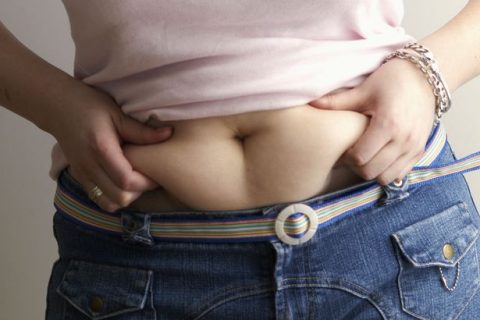Here’s something all men ought to know: if they are obese they may be more at risk of heart disease, stroke and type 2 diabetes than overweight women due to where they store fat.
Recent research from Israel found overweight men tend to carry fat around their abdomen, muscles and liver, putting them at risk of heart-related diseases and diabetes.
Whereas overweight women tend to store fat around their thighs and buttocks. The researchers claim this will protect them from heart attacks, type 2 diabetes and stroke.
Even more interesting, the study reveals why low-fat diets don’t work. MRI scans show for the first time how weight is stored in the body, why a low-fat diet isn’t always healthier and isn’t the most successful.
Compared to a low-fat diet, eating Mediterranean foods with a minimal-carb intake for lunch just three times a week significantly reduces fat storage around the heart and liver, says Professor Iris Shai from Ben-Gurion University, Israel.

Furthermore, 18 months of eating a diet rich in vegetables, fruit and nuts significantly reduced a person’s waist measurement, which is itself a sign of good health.
For their study the researchers looked at 278 sedentary adults with either abdominal obesity or abnormally high levels of fat in their blood. Over a period of 18 months the study’s participants were given either a low-fat or Mediterranean-diet lunch at least three times a week.
Both lunches contained exactly the same number of calories and all of the participants also received a daily 28g snack of walnuts.
Some of the participants were given gym membership so they could take moderate physical activity should they wish, and most did. Whole-body MRI scans were taken at six and 18 months.
At the end of the study it became clear that Mediterranean diets reduce waist circumference and internal fat.
In particular, exercise combined with a Mediterranean diet significantly reduced fat storage around the heart and liver, even more than eating low-fat food.
This was true even though weight loss was similar between people eating either diet. It’s the type of diet, not weight loss, that matters.
Professor Shai said: “These findings suggest moderate exercise combined with a Mediterranean/low carb diet may help reduce the amount of some fat deposits even if you do not lose significant weight as part of the effort.
“We learned in this trial that moderate, but persistent, weight loss may have dramatic beneficial effects on fat deposits related to diabetes and cardiovascular diseases.”

